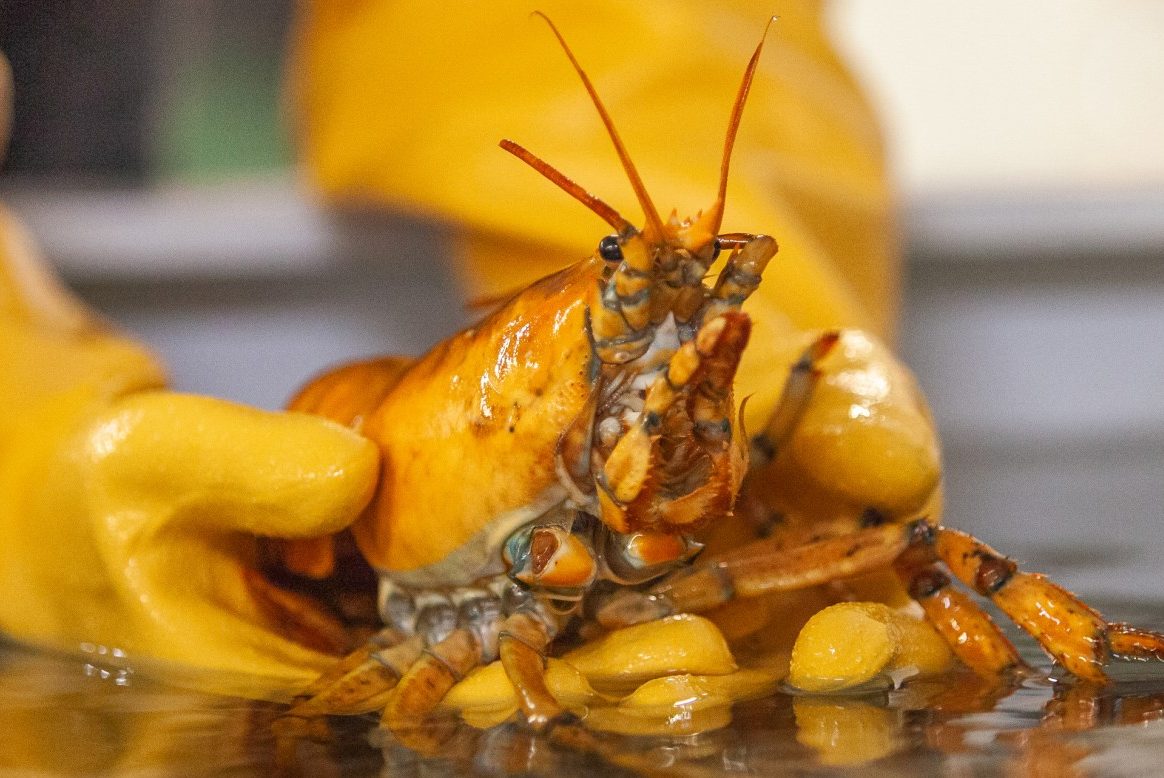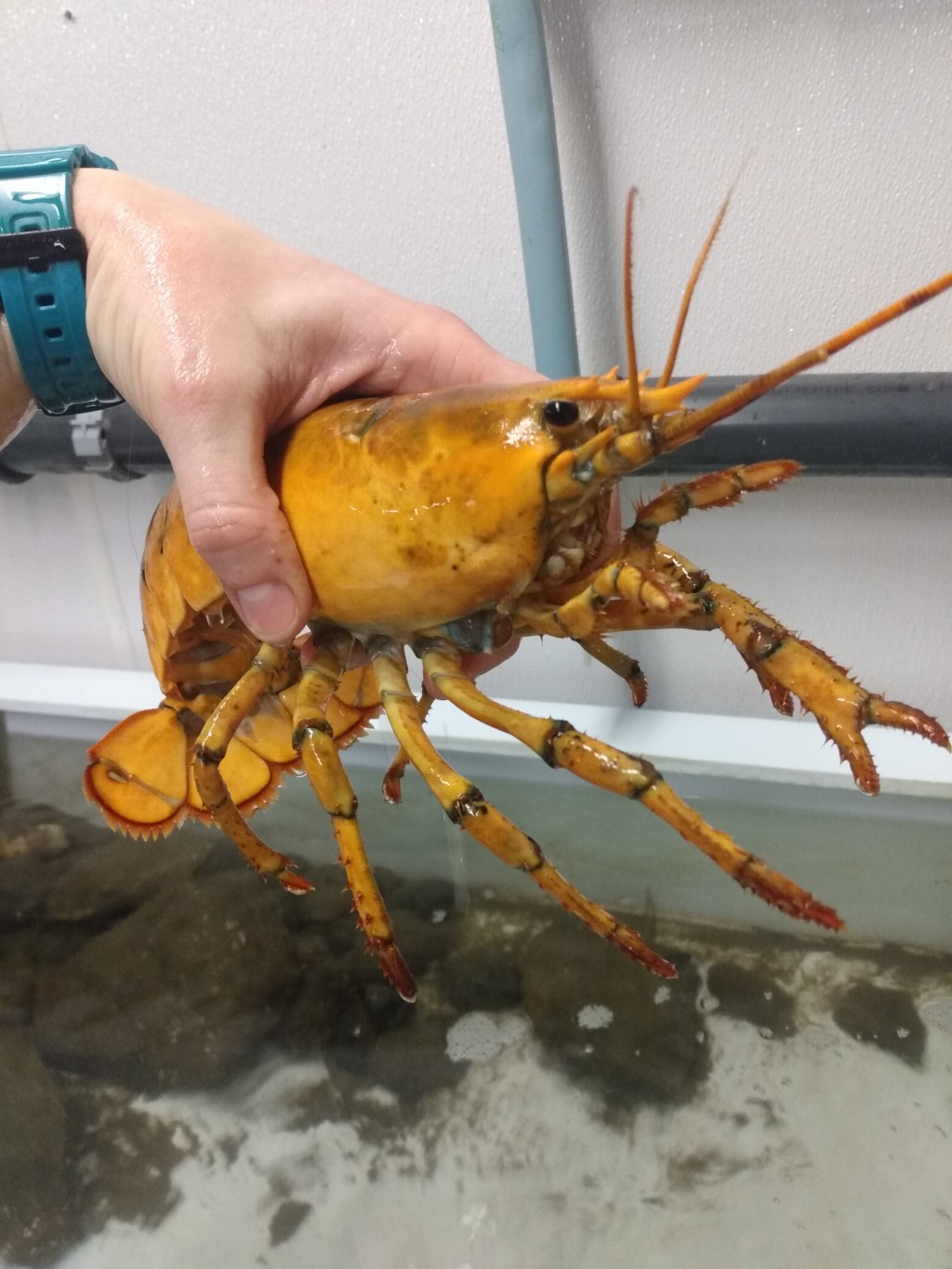A Maine fisherman has found a once-in-a-lifetime lobster with an extraordinary yellow shell — one that has earned it the name “Banana” and a pardon from ever being boiled for dinner.

Lobsterman Marley Babb caught the yellow crustacean in Tenant’s Harbor in St. George, Maine, earlier this month, according to the University of New England’s Marine Science Center. The university says Babb immediately called up its research team and offered to donate Banana for their ongoing research project.
“After working Wednesday, Marley insisted on driving Banana all the way down from Tenant’s Harbor to drop her off,” UNE lab co-ordinator Lindsay Forrette said in a news release.
“Banana is about a pound to a pound and a half and is settling in nicely here at the MSC.”
Lobster shells are typically greenish-blue or brown, but certain proteins occasionally cause one to have a blue or yellow shell, according to the Maine Lobstermen’s Community Alliance.

Get daily National news
Yellow lobsters occur about once in 30 million lobsters, according to the Alliance. Blue lobsters are one in two million while white lobsters are even more rare at one in 100 million.
The crustaceans only turn red when they’ve been boiled — something Banana will never have to worry about, thanks to Babb’s donation.
Different-coloured lobsters often capture headlines when they’re found in the northeastern U.S. and the Canadian Maritimes, though it’s been a few years since a yellow one surfaced.
The school thanked Babb for turning over the rare lobster, and hailed the donation as proof of the strong relationship it has built with local lobstermen in Maine.
The university is currently studying the effects of warming in the Gulf of Maine on lobsters and their lifecycle.





Comments